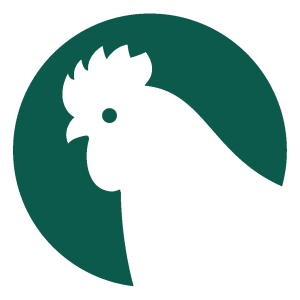Raising backyard laying hens has become a popular option in both rural and urban areas. In Norfolk County, you can keep up to 4 hens.
Please consult Norfolk County’s By-Law 2019-67 and the Zoning By-Law 47-Z-2019
 |
- Maximum of 4 chickens
- No roosters
- Sales of eggs, manure and other products associated with the keeping of chickens are not allowed
- Home slaughter of chickens is not allowed
- Owner of chickens must reside on the property where they are kept.
- Rental properties – written permission from the owner must be obtained
- All other by-laws will still apply, for example, noise, animal regulations, lot maintenance, and property standards.
- All Backyard Hen(s) shall be registered with the Ontario Chicken Marketing Board Small Flock Policy
|
 |
- 3.0 m from the rear lot line
- 3.0 m from a side lot line
- 3.0 m from a rear lot line abutting a side yard
- maximum of 10 square metres of useable floor area and have a maximum building height of 3 metres
- Coop must be enclosed on all six sides, if not buried.
|
 |
Food and Water
- Feeders and water containers must be provided, cleaned regularly and disinfected
- Feed must be stored in rodent-proof containers and secured at all times to prevent rodents and other animals from accessing it.
Manure
- All manure shall be stored within a fully enclosed waterproof container covered by a fully enclosed structure or weatherproof container.
- No more than 0.08 cubic meters (2.8 cubic feet) cubic feet of manure shall be stored on the premises at a time.
Deceased chickens
- Deceased chickens must be disposed of at a livestock disposal facility or through the services of a veterinarian, or through a facility as approved by the Ministry of Agriculture Food and Rural Affairs
|
 |
Avian Influenza, commonly known as the bird flu, is a viral infection that spreads easily and quickly among birds. This virus can affect several species of food-producing birds (chickens, turkeys, quails, guinea fowl, etc.), as well as pet and wild birds.
Signs and symptoms
Infected birds may show one or more of the following signs:
- lack of energy, movement or appetite
- decreased egg production
- swelling around the head, neck and eyes
- coughing, gasping for air or sneezing
- nervous signs, tremors or lack of coordination
- diarrhea
- sudden death
In rare cases, humans can become infected. Find more information about risks to humans on Health Canada's website.
Keep your birds safe
Follow these tips to protect your backyard chickens from the bird flu:
- prevent contact with wild birds and other animals
- frequently clean poultry coops, waterers, feeders, your clothing and your boots
- spot the signs of Avian Influenza and report early to a veterinarian or the Canadian Food Inspection Agency (CFIA)
- limit exposure to visitors
- separate birds, their water and food from wild birds
|




